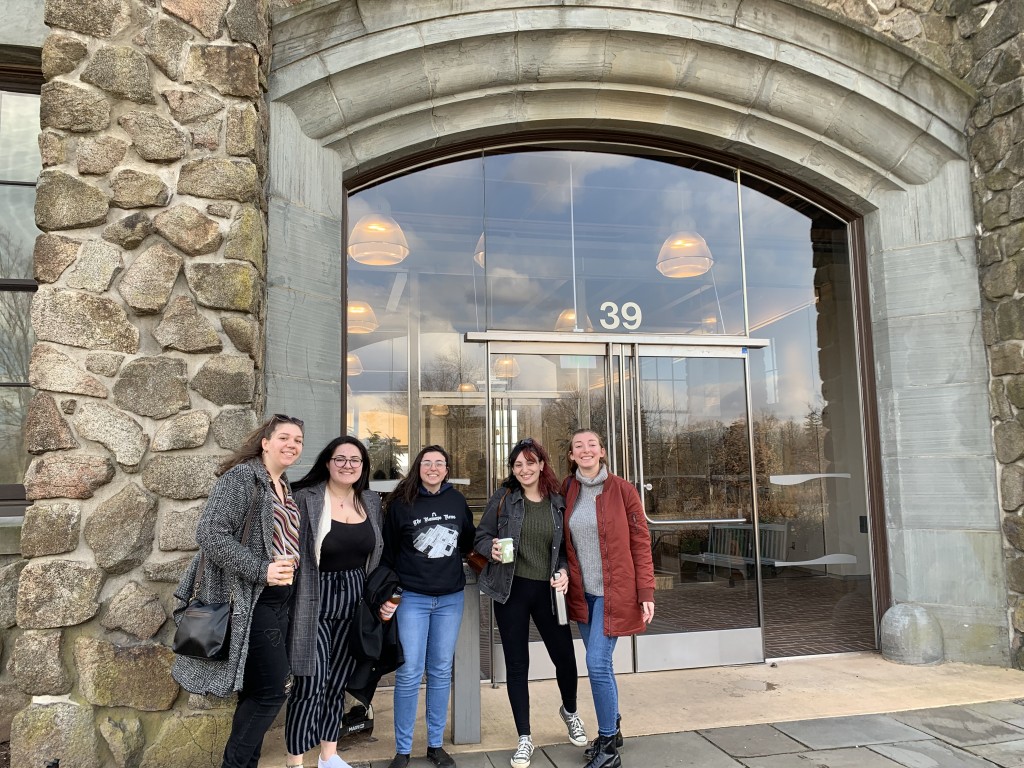
Photo by Kim Bongard
Editors of The Ramapo News and other college journalists from across New Jersey traveled to Duke Farms in Hillsborough on Saturday, Feb. 8 for a reporting workshop about covering climate change in the state. Through an environmental tour of Duke Farms and discussions with climate experts, student journalists learned about how climate change is impacting diverse ecosystems across New Jersey.
The workshop was designed for partners in the state-wide reporting project, pioneered by the New Jersey College News Commons to plan and collaborate on story ideas for the upcoming semester. The project aims to increase news coverage of climate change in college media and foster collaboration between different colleges to produce stories about climate change in New Jersey.
The Ramapo News joined the climate collaboration project as an official partner in November, alongside six other New Jersey schools including Montclair State University, Rowan University, Fairleigh Dickinson University, NJIT and New Jersey City University.
During a tour of Duke Farms, students learned about how there are technologies and strategies that can reduce the impacts of climate change. According to Jon Wagar, the deputy executive director of Duke Farms, eliminating emissions and removing existing greenhouse gases from the atmosphere can create a sustainable climate. Wagar also explained how Duke Farms is adopting more sustainable methods in its operations.
“In New Jersey, the more you green the grid, the more everything gets green,” Wagar said, referring to how every sustainable innovation can make a difference and lead to a more sustainable future.
Duke Farms has nine man-made lakes, over 18 miles of roads and over 45 buildings across its bucolic landscape. Duke Farms also contains the largest allotment-style community garden in the country.
A 22,000-square-foot former horse and dairy barn is the orientation center which has been renovated to LEED Platinum standards of the U.S. Green Building Council. By using geothermal energy to power its lighting and heating, Duke Farms has reduced its output of greenhouse emissions.
Another strategy to reduce greenhouse gases involves changing agriculture methods. Wagar said Duke Farms strives to respect its historic landscape, but it has also integrated native plants into its landscape because they require less water than lawns, do not require fertilizers and help prevent erosion.
“On the tour I learned it’s a reasonably easy task to change the way we treat the environment and utilize the resources we have,” said Amanda Giampaglia, a sophomore copy editor for the Ramapo News. “It’s easier than I thought to slow down the process of climate change.”
After an overview of Duke Farms’ sustainable infrastructure, the tour traveled outside of the orientation center to observe its waste management practices, permaculture garden and syrup production facility called the Sugar Shack.
The Sugar Shack produces syrup with sap extracted from maple trees growing at Duke Farms. Wagar said that the sap harvest of the trees has accelerated throughout the years, beginning in February rather than March due to a shorter winter season caused by the warming climate. If New Jersey’s climate continues to rise, Wagar said the livelihood of New Jersey maple trees will be threatened because they cannot grow in warm climates.
Following the tour, Will Atkinson from Climate Central, a climate science research and communications NGO in Princeton, delivered a presentation on how the media covers climate change.
In research conducted by Climate Change Communication at Yale University they found 71% of people in New Jersey believe global warming is occurring. Atkinson also said that more than 90% of scientists agree that climate-warming trends over the past century are likely due to human activities.
Despite these high numbers, Atkinson shared that a study by the Center for Climate Change Communication at George Mason University found that people in the United States only hear about global warming in the media at least once a week. Atkinson said it is critical that journalists tell climate change stories that are local to individual areas in New Jersey because climate change is not happening in select places but in communities everywhere.
kbongard@ramapo.edu





